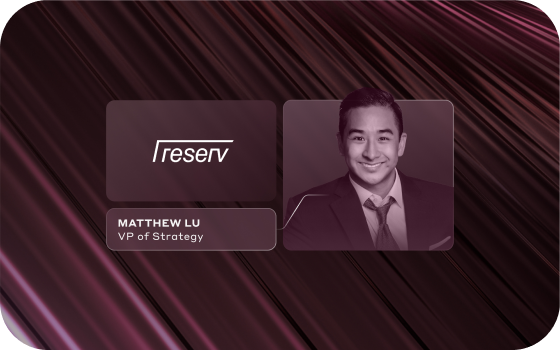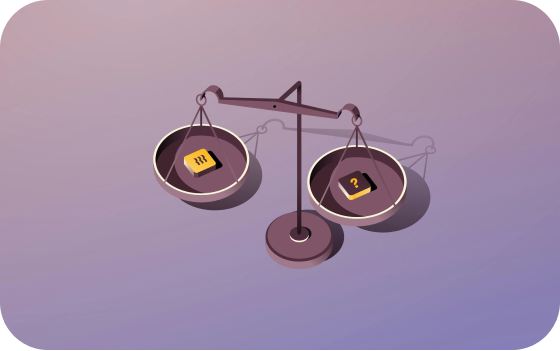An employer of record (EOR) is a third-party service provider that allows companies to legally hire and collaborate with employees overseas without establishing their own local entity in that country, while complying with local employment law and tax regulations.
How does EOR work?
An employer of record (EOR) streamlines global hiring by acting as the official employer for your international workforce. Here's how it works: the EOR establishes a legal entity in the target country, allowing you to hire employees without the need to set up your own local operations.
The EOR then takes on all legal and HR responsibilities, including payroll processing, tax compliance, employment contracts, and benefits administration. This setup not only ensures that your global employment practices adhere to local laws but also simplifies the management of overseas employees. With an EOR, you maintain day-to-day control over your employees' activities and performance, while the EOR handles the complexities of international HR compliance, letting you launch into new markets with ease and confidence.
Why do we need EOR?
Expanding your business globally presents exciting opportunities but also introduces complex regulatory challenges. An employer of record (EOR) solution simplifies this process by managing all legal and administrative responsibilities associated with hiring internationally. With an EOR, companies can hire and operate in new markets without establishing local entities, ensuring full compliance with employment laws and reducing the risk of costly penalties. This allows businesses to focus on growth and strategic operations, making global expansion both scalable and manageable.
Pros and Cons of EOR (Employer of Record):
Pros of EOR
Cons of EOR
Mitigate worker misclassification risks
Perceived lower control of workers
Access top global talent quickly and efficiently.
Permanent establishment risk
Save time and reduce costs
Inflexibility of number of local hire and length of employment
Minimize compliance risks
Lighten HR and payroll workloads
Ensure a consistent experience for local hires
Benefits of adopting an EOR for international hiring:
- Mitigate worker misclassification risks: Hiring contractors quickly is appealing but comes with significant misclassification risks, potentially costing millions in fines. An employer of record (EOR) solution helps you avoid these pitfalls by allowing you to hire full-time employees as effortlessly as you would for contractors, ensuring compliance and reducing legal exposure.
- Access top global talent quickly and efficiently: Rapid business growth requires tapping into a global talent pool. To attract top talent, competitive and localized compensation packages are essential. An EOR facilitates swift hiring and integration of global talents, offering tailored benefits packages that meet local standards, thereby enhancing your appeal as an employer.
- Save time and reduce costs: An EOR solution streamlines the complex process of establishing a local business entity, saving time and reducing costs associated with legal fees, incorporation, and registration. This approach not only simplifies operations but also accelerates your market entry.
- Minimize compliance risks: EORs are experts in global employment, knowledgeable about the intricacies of local labor laws and regulatory requirements. By partnering with an EOR, you reduce the risk of compliance issues, ensuring that your business adheres to local laws more reliably than if you were to manage these responsibilities in-house.
- Lighten HR and payroll workloads: Utilizing an EOR can significantly reduce the administrative burden on your HR and payroll teams. EORs handle the complexities of local taxes, pensions, and statutory benefits seamlessly within one system, freeing up your team to focus on strategic initiatives rather than day-to-day management of global employees.
- Ensure a consistent experience for local hires: An EOR enables you to offer full-time global employees competitive benefits, ensuring that they have a similar employment experience to their counterparts in other regions. This consistency helps in maintaining a unified company culture and high employee satisfaction across borders.
Although we see many benefits in adopting an EOR solution, there are some disadvantages that you have to take note too.
Potential drawbacks for engaging in an EOR solution:
- Perceived lower control of workers: When you hire through an EOR, the EOR is the official employer on record, which might lead to a perception of diminished control over your employees. Although you manage the day-to-day activities of your workforce, the EOR handles HR functions like payroll, benefits, and compliance. This division can make it feel like there is a layer between you and your employees, potentially affecting how you implement company culture and internal processes.
- Permanent establishment risk: Utilizing an EOR can sometimes blur the lines regarding tax obligations and corporate presence in a foreign country. There's a risk that the local authorities might view the EOR’s activities as creating a permanent establishment for your company, thereby subjecting you to local corporate taxes and regulatory requirements. This risk varies by jurisdiction and depends on the level of activities carried out by the EOR on behalf of your company.
- Inflexibility in number of local hires and length of employment: EOR solutions may limit the scalability of your operations. Certain EORs may impose restrictions on the number of employees you can hire through them due to permanent establishment concerns, or they may set limits on the duration of employment contracts. Such constraints can hinder your ability to scale operations flexibly, especially if your business undergoes rapid growth or requires workforce adjustments based on project demands or market changes.
What is included in Employer of Record (EOR) services?
EOR services vary by provider and country. Common offerings include:
- Compliant international hiring without a local entity
- Creation of localized, compliant contracts
- Global payroll and local tax management
- Always-on compliance risk notification
- Employee equity and IP protection
- Management of employee benefits
- Streamlined employee onboarding and offboarding
- Expense management
- Device management
- Local HR advisors with in-country expertise
2 Types of EOR
1. Partner dependent EOR
A Partner Dependent EOR, or third-party EOR, leverages local entities or third-party providers in the countries it operates instead of owning its own legal entities. This approach allows the EOR to quickly extend its reach across different regions, handling local employment laws, payroll, and HR tasks through trusted partnerships.
In this model, the EOR counts on its partners to ensure everything from tax deductions to compliance with local labor laws and management of employment contracts runs smoothly. This method can be a faster, more cost-effective way to expand internationally without the complexities of setting up multiple international entities. However, it also means relying on the partner's expertise and dependability.
While a Partner Dependent EOR can streamline entering new markets, it's crucial to maintain a close watch on these partnerships. Ensuring that there are strong agreements and understanding in place is key to protecting your business and your team, keeping service quality high and your operations running smoothly.
2. Owned entity
An Owned Entity EOR operates through its own legal entities established directly in the countries where it provides services. This model gives the EOR complete control over compliance, payroll, and HR tasks by managing these responsibilities in-house. Owning local entities ensures that the EOR adheres strictly to local employment laws and regulations, offering a more seamless and integrated experience for both the employer and the employees.
By directly managing its entities, the EOR provides a robust framework for businesses expanding globally. This direct management often results in quicker response times, enhanced customization to meet specific corporate policies, and a unified approach to managing global teams. Furthermore, having an owned entity model enhances data security and privacy, as all operations are handled internally without reliance on third-party providers.
For companies seeking a reliable global expansion partner, an Owned Entity EOR stands out by offering stability, direct control, and a deep commitment to compliance and quality service.

Establishing a formal business entity in a foreign country is complex and, without deep knowledge of the regulatory systems in that country, can be fraught with risk. An EOR minimizes compliance risk and simplifies the hiring process.
How to choose an EOR
Choosing the right employer of record (EOR) is crucial for successful global expansion, as EORs are not one-size-fits-all. This comprehensive checklist will guide you in selecting an EOR that best fits your business needs:
- Country Coverage: Ensure the EOR operates in the countries where you intend to hire, as establishing a business entity in a foreign country can be complex and risky without in-depth local knowledge.
- Ownership of Entities: Verify whether the EOR owns its entities or partners with local third-party providers, which could impact process efficiency and IP security.
- IP and Data Protection: It's essential that the EOR has robust data protections and secure technology to safeguard sensitive corporate information and intellectual property.
- Compliance and Track Record: Research the EOR's compliance history and reputation. Look for any legal issues, compliance breaches, or negative reviews that might indicate how well the EOR manages regulatory requirements across different jurisdictions.
- Features and Automation: Evaluate if the EOR offers automation tools that streamline onboarding, benefits enrollment, and other HR tasks to save time and reduce manual effort.
- Customer Support: The responsiveness and expertise of the EOR's support staff are crucial as they represent your company to your global employees.
- Cost Effectiveness: Consider the financial implications of using an EOR, including the pricing structure—whether it's a fixed monthly fee per employee or a percentage of payroll. Be mindful of hidden fees like foreign exchange rate costs and ensure the total cost aligns with your budget.
PEO vs. EOR: What's the difference?
A professional employer organization (PEO) and an EOR may seem similar, but they are legally very different. Therefore, it is essential to understand the distinction between the two when hiring employees overseas.
Unlike an EOR, a PEO co-employs a company’s workforce for administrative purposes, like paying employees and filing payroll taxes. Co-employment means that both the company and the PEO employ its workers–each is responsible for certain obligations of employment. A PEO does not allow you to hire in other countries where you do not have a local entity. A PEO serves as a turnkey replacement for the whole HR function.
An EOR, on the other hand, is the sole employer of record and assumes the associated responsibilities. An EOR allows companies to work with employees in other countries without setting up a business entity there. As a result, it can be used for a portion of the workforce, complementing operations in the business’s home country.
AOR vs. EOR: What's the difference?
An agent of record (AOR) and an employer of record (EOR) both facilitate aspects of employment management, but they serve distinct roles. An AOR acts as an intermediary that manages contractual relationships between your business and third-party entities, like vendors or media companies, mainly focusing on contract negotiation and compliance within specific sectors.
On the other hand, an EOR becomes the legal employer of your workforce in foreign jurisdictions, managing all employment-related legal and compliance responsibilities, including payroll, benefits, and taxes, enabling businesses to hire internationally without establishing a local presence.
Staffing Agency vs. EOR: What's the difference?
A staff agency recruits and employs workers to assign them temporarily to businesses, managing the hiring process but not ongoing employment responsibilities.
An Employer of Record (EOR) tool simplifies global employment by allowing businesses to legally hire and manage international employees without needing to establish local entities. This tool manages all compliance, payroll, benefits, and HR tasks, ensuring smooth operations across different countries.
Which countries are Employer of Record (EORs) available in?
EOR services are available across a number of countries. Learn more about all the country-specific EOR services in the guides below:
- EOR in Canada
- EOR in India
- EOR in the UK
- EOR in France
- EOR in Spain
- EOR in Germany
- EOR in Australia
- EOR in Mexico
- EOR in the Philippines
- and more in our country hiring guides
Disclaimer: Rippling and its affiliates do not provide tax, accounting, or legal advice. This material has been prepared for informational purposes only, and is not intended to provide or be relied on for tax, accounting, or legal advice. You should consult your own tax, accounting, and legal advisors before engaging in any related activities or transactions.









































































































